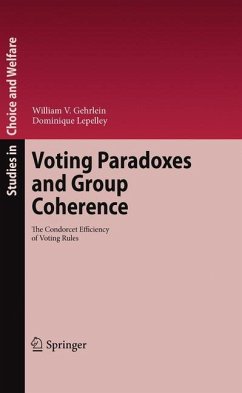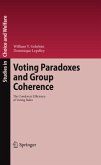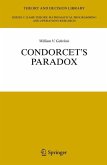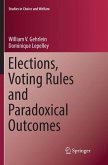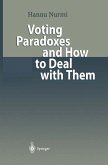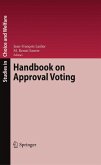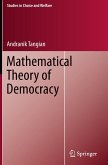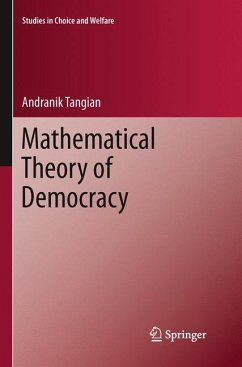The likelihood of observing Condorcet's Paradox is known to be very low for elections with a small number of candidates if voters' preferences on candidates reflect any significant degree of a number of different measures of mutual coherence. This reinforces the intuitive notion that strange election outcomes should become less likely as voters' preferences become more mutually coherent. Similar analysis is used here to indicate that this notion is valid for most, but not all, other voting paradoxes. This study also focuses on the Condorcet Criterion, which states that the pairwise majority rule winner should be chosen as the election winner, if one exists. Representations for the Condorcet Efficiency of the most common voting rules are obtained here as a function of various measures of the degree of mutual coherence of voters' preferences. An analysis of the Condorcet Efficiency representations that are obtained yields strong support for using Borda Rule.
From the reviews: "This book bridges the gap between the theoretical literature showing the possibility of counterintuitive results and the empirical findings of many experiments in which these counterintuitive results hardly or not at all appear. This is a very well written book, extremely rich in information, integrating many existing and new results and with an impressive number of references to the literature. It is an important and relevant step forward in the Theory of Social Choice, highly recommended to anyone interested in this field." (H. C. M. de Swart, Zentralblatt MATH, Vol. 1252, 2012)

